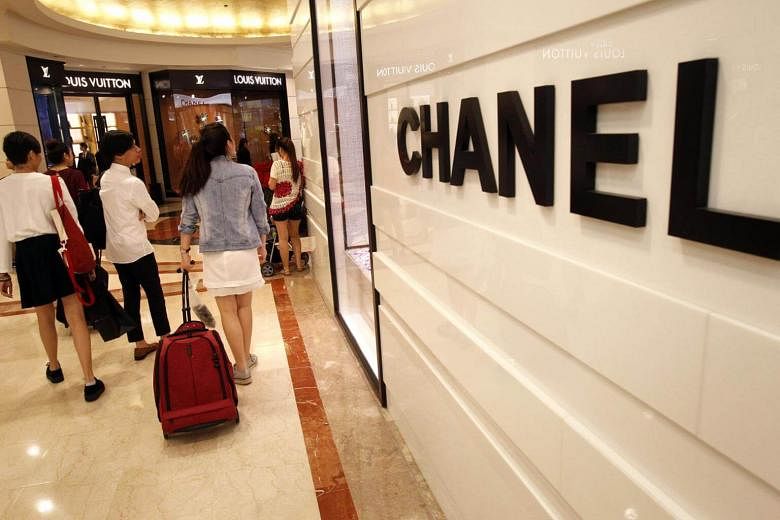NEW YORK • Rich pickings can now be tapped from generations Y and Z, who are rewriting the rules of the luxury market, according to a report released on Wednesday by consulting firm Bain & Co.
The global luxury market, encompassing goods and experiences, is forecast to grow by 5 per cent this year to US$1.4 trillion (S$1.9 trillion), according to the study.
While older shoppers have traditionally driven the growth of sales in the luxury sector, this time, it was shoppers born after 1980 who made the difference.
Generation Y provided 30 per cent of all spending and, with Generation Z (those born between 1995 and 2010), generated 85 per cent of the growth in the luxury market in the last 12 months, said Ms Claudia D'Arpizio, a partner at Bain who specialises in luxury and fashion industries.
"This power shift between generations, away from the baby boomers towards younger shoppers, means the latter are now the growth engine of the market in every region globally," she noted.
Key to success with younger consumers have been efforts by brands to develop engaging content for digital platforms such as Instagram and Snapchat.
Heavy investment has also gone into luxury streetwear such as sneakers, sliders (bedroom slipper-like shoes) and down jackets, with some brands showing double-digit sales growth in those product categories.
And pairing with pop stars and social media influencers, rather than just Hollywood glitterati and models, has become an essential part of product marketing.
Ms D'Arpizio said: "The fact that customers are getting younger and younger is good for the future of the industry."
Growth in the personal goods market flatlined last year. For this year, Bain has forecast a 6 per cent increase in the sector's revenue, beating predictions earlier this year for growth of 2 to 4 per cent.
The positive prospects painted by the report corresponded with the robust earnings reports from some of the luxury industry's power players.
Shares in Kering reached record highs on Wednesday after the French luxury group reported a 23 per cent hike in revenue in the three months to end-September, driven by the performance of star brands such as Gucci, where revenue soared 42 per cent in the quarter.
Earlier this month, LVMH Moet Hennessy Louis Vuitton, the world's largest luxury group by revenue, continued its upward momentum with a 12 per cent increase in the first nine months of the year.
The latest change in fortunes is not all down to the selfie generation. Tourism flows have recovered in Europe, buoyed by a weaker British pound and economic recovery in China, counter-balancing a slower United States market.
Chinese buyers now lead the luxury goods market, at 32 per cent of all buyers, thanks to increased purchasing abroad and at home. That rise in domestic sales is a result, at least in part, of a reduction in the price differentials that once existed in geographic markets and which had driven buyers to shop outside their home markets.
Investment in streamlining sales channels and improving shopping experiences online and offline is also paying off, the Bain report noted.
Online luxury sales jumped by 24 per cent, with Bain estimating that online sales of personal luxury goods will make up 25 per cent of the market by 2025.
While 65 per cent of all luxury companies will see sales growth this year, only 35 per cent will manage to increase operating profits, Bain projected.
Still, the consensus is that the future looks bright.
"The last few years have been very painful for the luxury industry," Ms D'Arpizio said.
"But we are entering a new normal, where winners and losers are being decided by those who take a smart new approach to their business that factors in the changing macro state of the world.
"It will be exciting for everyone to see what happens next."
NYTIMES

